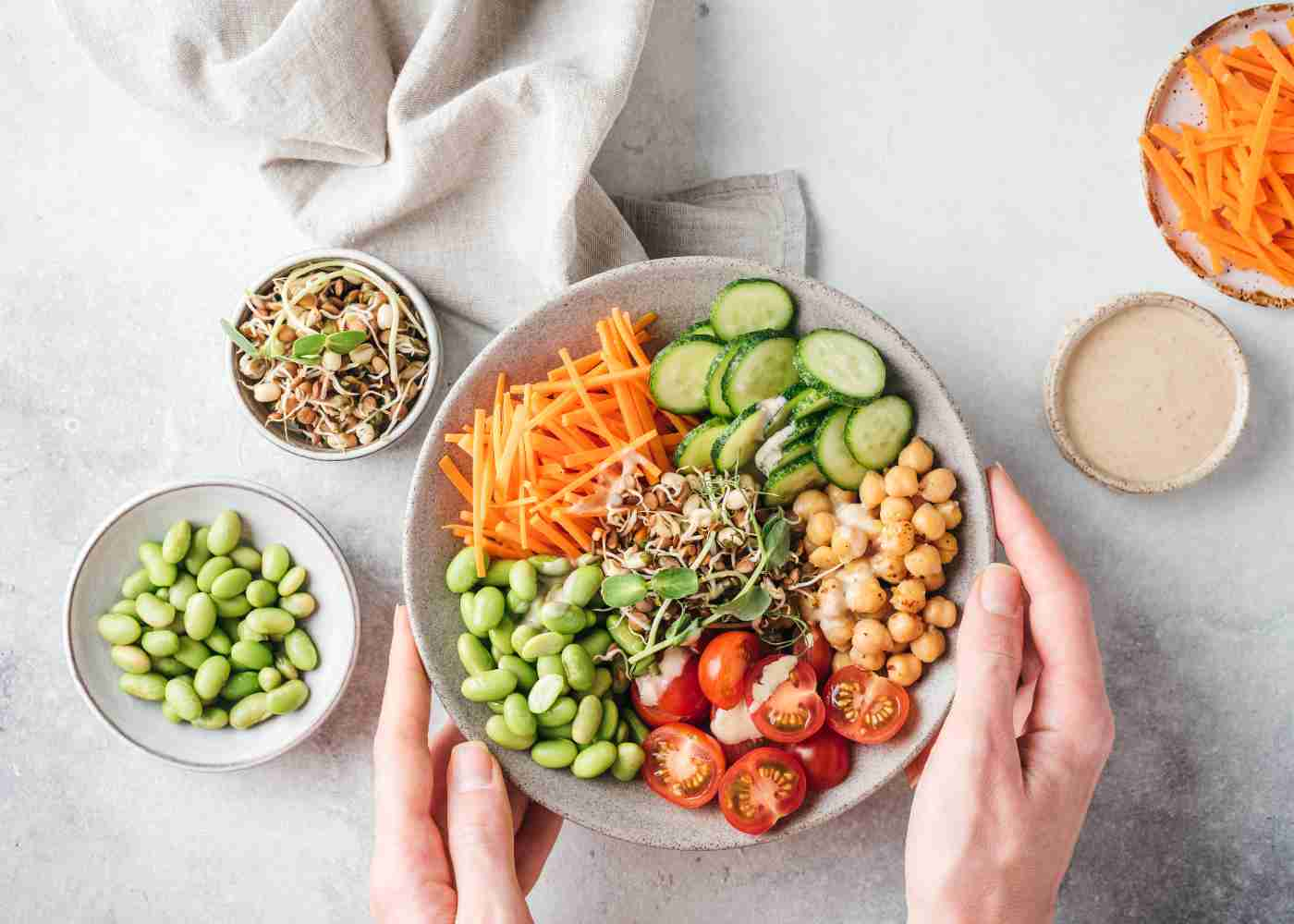
Converting to vegetarian eating has many benefits for your
body’s health, conservation of the environment, and culinary pleasure. However,
most people tend to either rely on processed foods or fail to get key nutrients
in their diet. The success of your vegetarian diet will depend on the design of
your meal plans, which should include all the nutrients needed in your diet and
be nutritious and palatable.
Energy Meal Plans is dedicated to creating total vegetarian
food alternatives that fulfil the bodily sustaining requirement and taste
requirements alike. This guide is for new and experienced vegetarians who want
to understand vegetarian protein as well as meal preparation and provides
essential information about vegetarian meal planning. In this guide, we shall
take you through one of the best plant-based diets to cope with your lifestyle
needs.
1. Understand the Basics of a Balanced Vegetarian Diet
To sustain a characteristic vegetarian diet, you should
choose several foods that support all the needed dietetics. Focus on these key
components:
- Protein: Beans, lentils, tofu, tempeh, quinoa, and nuts.
- Iron: Spinach, lentils, chickpeas, and fortified cereals.
- Calcium: Leafy greens, fortified plant-based milk, and
almonds.
- Vitamin B12: Nutritional yeast, fortified foods, or
supplements.
- Healthy Fats: Avocados, nuts, seeds, and olive oil.

2. Prioritize Protein in Every Meal
However, many vegetarians fear not getting enough protein
and they can easily meet this need. Vegetarian protein foods such as chickpeas,
black beans, edamame and seitan should be a part of your diet for each meal. A
quinoa and black bean bowl or a tofu stir fry can be satisfying meals with one
or two of protein-rich content combined.
3. Embrace Whole, Unprocessed Foods
Whole grains and fresh produce and vegetables, as well as
legumes, should be included in your meals. These foods provide your body with
important vitamins, minerals and dietary fiber necessary for the proper
functioning of the body as nutrients of plant-based nutrition.
4. Plan for Variety
With a variety of foods, you can consume complete nutrition
from your diet. Divide your vegetarian diet for seven days arranging various types
of grains legumes and vegetables. Instead of brown rice, try farro and a
variety of unknown vegetables such as bok choy or kohlrabi.
5. Master Vegetarian Meal Prep
Make some basic food items such as roasted vegetables cooked
grains and marinated tofu that you can ready yourself and devote a couple of
hours a week to preparing. This method makes it possible to prepare healthy
plant-based meals quickly during your busy work days. Portioning meals and
snacks is a lot more convenient on small containers, so you can easily grab
them during the day.
6. Don’t Forget Healthy Fats
Healthy fats are required to meet the demands of nutrients
and energy. While roasted vegetables obtain flavor from olive oil and a
sprinkle of avocado toast can supply a nourishing snack option, eat your
oatmeal with a small serving of nuts.
7. Experiment with Global Cuisines
It is also worth noting that traditional cuisines that
normally contain plant-based nutrients will help people explore Indian
Mediterranean and Mexican dishes among others. Your vegetarian diet will get a
great diversity with options such as lentil dal, falafel wraps and vegetable
enchiladas.
8. Supplement When Necessary
A vegetarian food system arranged correctly provides enough
of all vitamins except possibly B12 and omega 3s. Choose appropriate foods
through the advice of a medical adviser.

Sample Balanced Vegetarian Meal Plan
Breakfast:
- Smoothie bowl with spinach, banana, almond milk, chia seeds,
and a scoop of plant-based protein powder.
- Topped with granola and fresh berries.
Lunch:
- Quinoa salad with roasted chickpeas, cherry tomatoes,
cucumber, and a lemon-tahini dressing.
- Side of steamed broccoli.
Snack:
- Hummus with carrot sticks and whole-grain crackers.
Dinner:
- Stir-fried tofu with bell peppers, snap peas, and brown
rice.
- Drizzled with a ginger-soy sauce.
Dessert:
- Dark chocolate-covered almonds.
Why Balanced Vegetarian Meal Plans Work
A properly planned vegetarian diet is healthy for people, as
well as for the environment. Healthier plant-based nutrition means smaller
environmental impact found in a diet of natural and nutritional ingredients. In
line with this, the belief that vegetarian meal preparation must be healthy and
simple is what our organization Energy Meal Plans holds.
Conclusion
Meat reduction isn’t the only part of the equation involved
in the process of creating a well-balanced vegetarian diet because with it
comes the opportunity to find an eating style that delivers nutrients and
produces tasty meals without meat. With vegetarian protein sources as well as
both healthy vegetarian recipes and vegetarian meal preparation skills you can
develop an exciting nutritious diet.
However, each person must make this transformation at their
own pace, and a person should not skip the time when building their balanced
plant-based eating habits. Start with small steps that you can take in the
beginning, realizing your progress and having the desire to try new things. An
appropriate resource and an appropriately directed mental approach will then
enable you to learn that vegetarianism leads to practical success and
meaningful rewards.
We offer our delicious and carefully designed meals to help
your plant-based lifestyle and make the journey towards eating vegetables
simple. Start now as you have already begun on your way to healthy and
sustainable living. You and the planet will express gratitude both to your body
and to the planet.



















